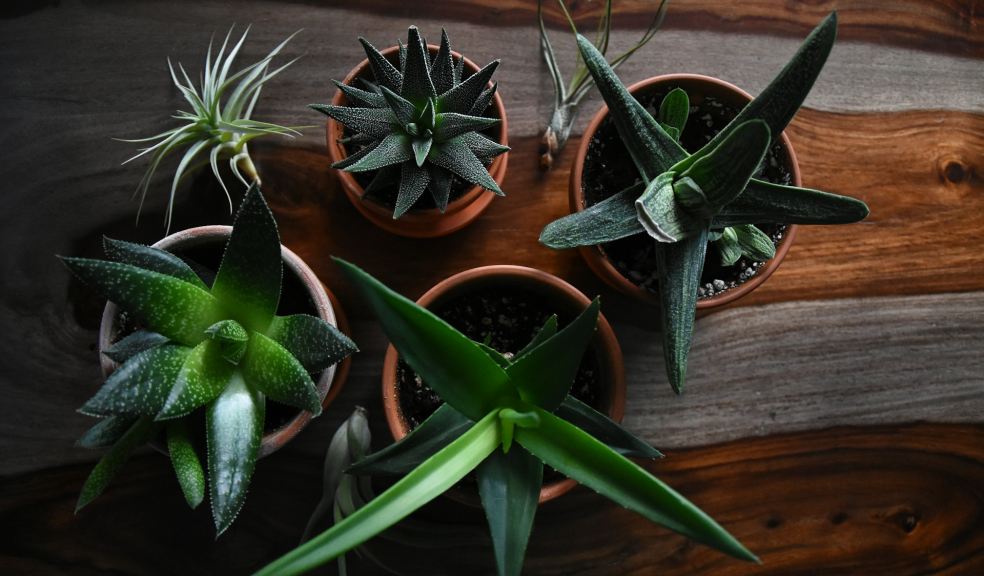
Nature and health: 7 plants that might improve your well-being
Plants have always been essential elements used to improve human health. They've been used in the pharmaceutical industry for decades and are also a main component of beauty products. The greenery contains multiple vitamins and minerals essential to the body’s functioning. Also, many people grow plants indoors to make their own treatments at home that can help with diseases, infections, and allergies or to promote relaxation and enhance their overall well-being. The natural sources provide multiple benefits that can serve all aspects of life, from mental clarity to physical well-being. So, if you are willing to embrace the path of nature towards wellness, in this article, you can find 7 plants that can help you live better:
-
Aloe vera
Aloe vera is one of the most popular plants on the market thanks to its antibacterial and antioxidant properties. The plant stores water in its leaves, creating a slimy tissue that makes them thick. The antibacterial benefits are due to a substance called polyphenols, which help inhibit the growth of bacteria that cause infections. Moreover, aloe vera is also known for being used as a raw plant by people who grow the plant indoors or in skincare products to treat skin conditions. Also, it might fasten the healing process of wounds like sores, and sunburns. It can be used as a topical gel, ointment, or raw, or it can even be consumed as a liquid.
-
Turmeric
Turmeric is a relative of ginger, and it's commonly known for adding colour and flavour to meals. Still, besides being a great seasoning from Asian culture, it's also a plant that comes with multiple health benefits. Curcumin is a main component of turmeric, and studies suggest that it might have positive effects on inflammations, it may regulate mood disorders and mental issues like anxiety and depression, it could improve kidney health and it might be a treatment for arthritis. Thanks to its properties, turmeric is commonly found in pain relievers and other medicines and supplements for daily intake. However, besides being used for food, turmeric can also be consumed in tea, and it's a widespread component in the cosmetic industry to treat skin conditions.
-
Cannabis
Cannabis is a plant that comes with potential health benefits to improve mental and physical wellness. The green plant is commonly known for treating anxiety, as it accesses receptors in the brain that will enhance relaxation. Still, it could also alleviate the symptoms of severe diseases like cancer, and it might reduce chronic pain. To be consumed responsibly, cannabis can be grown indoors (where legal), purchasing cannabis seeds from a trustworthy source to ensure the best quality of the plant. The cultivation of the popular plant can be the best way to ensure great homemade treatments and avoid purchasing from sketchy sources that might worsen your conditions. For instance, the experts at https://www.seedsman.com/uk-en/ provide you with a wide range of seeds to explore the possibilities of this unique plant.
-
Basil
Basil is another common plant used in the kitchen that, besides having a good taste, you might not know much about. The green supplement contains vitamins and minerals that act as antioxidants that help fight cell damage, which can possibly lead to severe diseases like arthritis and diabetes. Moreover, basil can boost the immune system thanks to the improvement of Cells T, which protects the body from infections and diseases in the environment. Furthermore, sweet basil is an excellent source of vitamin K, which is associated with bone strength, and blood's ability to clot and it can help improve the immune system.
-
Lavender
Lavender is a natural stress reliever that has been used for decades. It is one of the most popular plants for aromatherapy because the purple plant has a specific fragrance that is known to help with insomnia and improve relaxation. Nowadays, this kind of therapy that involves lavender has become a common practice for cancer patients to alleviate the negative mental effects of chemotherapy. Moreover, lavender essential oil can be a recommended treatment for chronic mental issues like anxiety, and it could also minimise the symptoms of chronic pains like migraines.
-
Chamomile
You must've heard about chamomile or even tried at least once the tea made from this plant. Chamomile is popular thanks to its calming effects and for improving sleep quality. The plant contains apigenin, which is an antioxidant that might relate to some receptors in the brain that promote sleepiness. Also, studies suggest that the plant may also help with diabetes, as the tea might lower the blood sugar level. However, chamomile is certainly used to alleviate cold symptoms, as it can help support the immune system, and fight viruses and bacteria, and the hot beverage can reduce throat soreness.
-
Sage
Sage is a member of the mint family, and its medicinal uses go back centuries. The herb is rich in vitamin K and minerals like magnesium and zinc. It also contains antioxidants like vitamins A, C, and E, which help combat the molecules in the environment that can damage the cells in our body, leading to severe diseases like cancer. Traditionally, the leaves of sage have been used as a remedy for diabetes, as it might help lower blood sugar levels. The plant may also help fight Alzheimer's, as it stops the breakdown of acetylcholine, which plays a vital role in memory.
The bottom line
Nature provides us with multiple sources to help us live a healthy lifestyle. From the foods we consume to the products we use for skin care, plants play a crucial role in regulating our body's functioning systems, as they contain the vitamins and minerals we need to minimise the risks of diseases, promote better mental health and improve our overall well-being. With that said, we hope this article encourages you to introduce beneficial plants into your diet to embrace a healthier life.













